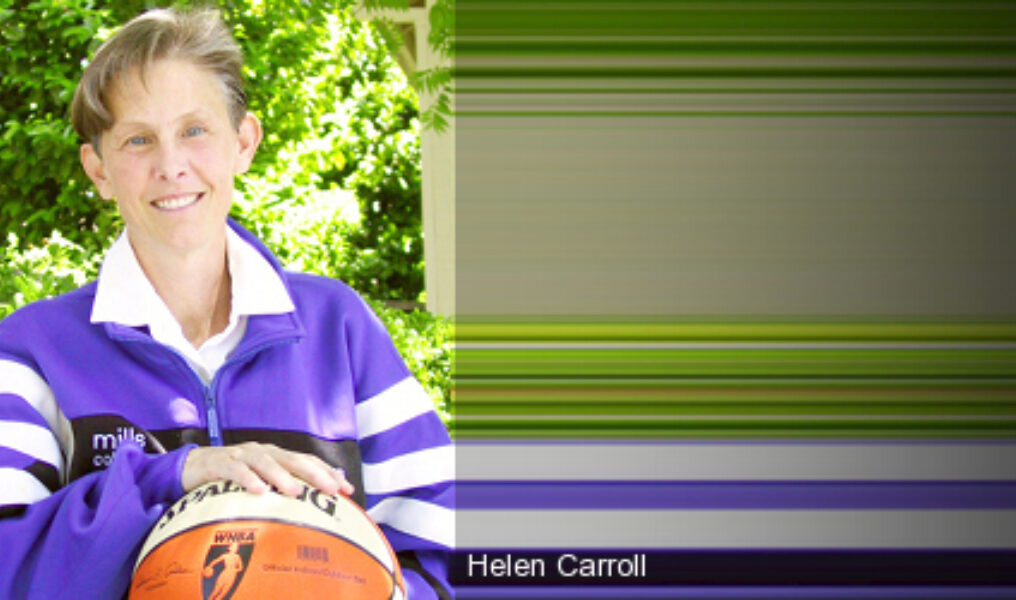By Dan Woog

This sounds like one more story of discrimination based on sexual orientation in the sports world.
Three bisexual men filed a lawsuit after they were disqualified from playing in a Softball World Series tournament. And, they say, because they are bisexual their team forfeited its second-place trophy.
But hold on. As in Alice's Wonderland, the world of athletics is not always what it seems. The defendant is the North American Gay Amateur Athletic Association. The event was the 2008 Gay Softball World Series in Seattle. The bisexuals claim they were discriminated against not by straight people, but by gays. They say they were kicked out not for being gay, but because they're not gay enough.
The men are being represented by the National Center for Lesbian Rights. That group is involved, says its Sports Project director Helen Carroll, because the NCLR cares deeply about making sure that bisexuals – men as well as women – are welcomed and included in the gay community.
The lawsuit says the NAGAAA asked "intrusive" questions about the three men's sex lives. (NAGAAA rules limit each team to no more than two heterosexual players.) An NAGAAA official then allegedly said, "This is the Gay World Series, not the Bisexual World Series."
A host of through-the-looking glass issues are involved here.
The NAGAAA's own Articles of Incorporation says it is "dedicated to the promotion of amateur sports competition, particularly softball, for all persons regardless of age, sexual orientation or preference." That seems pretty straightforward (pun intended).
In addition, NAGAAA attorney Beth Allen was quoted on the Queerty blog as saying the NAGAAA strives to create an environment in which athletes can "play ball together…(and not) face any type of discrimination." The OutField is not a lawyer, but kicking bi players out of a tournament – and recommending sanctions against both their team and their entire San Francisco league – seems, well, discriminatory.
"Public vs. private" issues come in to play too.
Attorney Allen says that if the NAGAAA were a "public accommodation" they could not enforce rules based on sexual orientation. But because they are a private organization, "seeking to provide a forum for gay and lesbian athletes, or those who would like to become athletes, to play ball together in an environment where they don't face any type of discrimination," they can, well, discriminate.
Yet the tournament was played not on a private field in Seattle, but at public venues. Washington state law prohibits discrimination based on sexual orientation in public accommodations.
The public/private debate reminds The OutField of another controversy. The Boy Scouts of America has been roundly criticized for its refusal to hire gay leaders or administrators – and its ouster of gay Scouts. When the BSA claims that it is a private organization, the gay community replies, "But you use public facilities!" (So far, the Scouts have prevailed.) As in Wonderland, things get awfully weird when they're examined through a different end of the looking glass.
The mind reels. What would the NAGAAA say if someone tried to organize a tournament that allowed only two "homosexuals" per team? Or even no more than "a combination of two gay men, lesbians, bisexuals and/or transgender persons"?
Who made the NAGAAA the arbiter of sexual orientation anyway? When did they decide that bisexuals are not members of the gay community? And, by the way, what is the definition of "bi"? Is there a hard definition of bisexuality? A percentage or number of encounters above or below which one qualifies as "gay" or "not gay"? And where do fantasies fit in all this?
Taking this Alice-like further down the rabbit hole, what if a team really, really likes three or four straight players, and those guys really, really want to join a gay team? Would it be OK if they lied and said they were gay? Would they have to prove it by going to gay bars? Making out on the dance floor? Or is it OK just to crank up Lady Gaga?
Of course, we all know gay guys who pass as straight. They're married, they've got kids, yet they're all over Craigslist. Where do they fit in? Do they count as gay – 'cause they are – or as straight, which is the way the rest of the world sees them? It's all so confusing.
Maybe the solution is to forget about labels and apply a simple test. When someone wants to join a softball team, just ask: "Pitcher or catcher?"
If he laughs, he's in – no questions asked. If he says, "Actually, I'm a center fielder," tell him you're not interested in that position.










